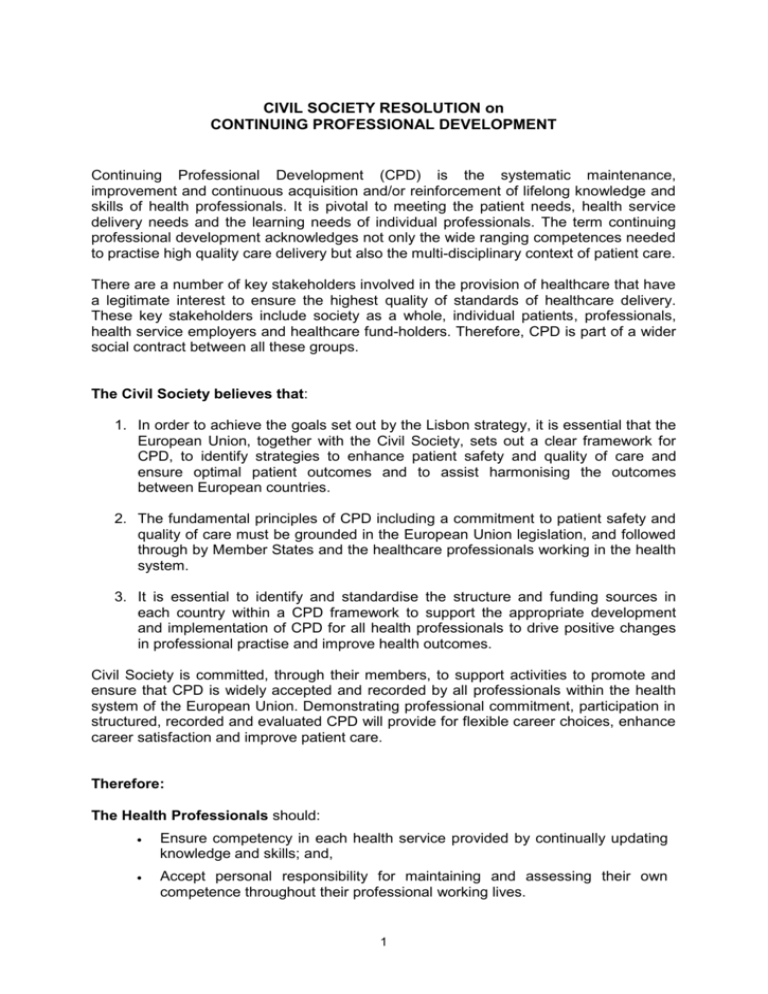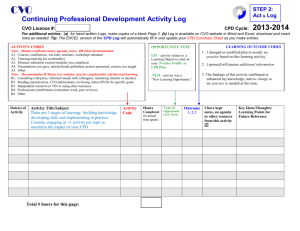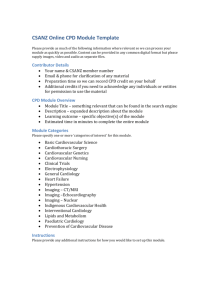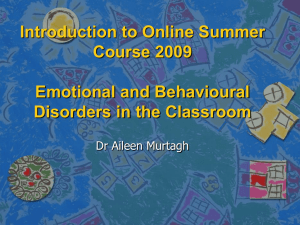Civil Society Resolution on Continuing Professional Development
advertisement

CIVIL SOCIETY RESOLUTION on CONTINUING PROFESSIONAL DEVELOPMENT Continuing Professional Development (CPD) is the systematic maintenance, improvement and continuous acquisition and/or reinforcement of lifelong knowledge and skills of health professionals. It is pivotal to meeting the patient needs, health service delivery needs and the learning needs of individual professionals. The term continuing professional development acknowledges not only the wide ranging competences needed to practise high quality care delivery but also the multi-disciplinary context of patient care. There are a number of key stakeholders involved in the provision of healthcare that have a legitimate interest to ensure the highest quality of standards of healthcare delivery. These key stakeholders include society as a whole, individual patients, professionals, health service employers and healthcare fund-holders. Therefore, CPD is part of a wider social contract between all these groups. The Civil Society believes that: 1. In order to achieve the goals set out by the Lisbon strategy, it is essential that the European Union, together with the Civil Society, sets out a clear framework for CPD, to identify strategies to enhance patient safety and quality of care and ensure optimal patient outcomes and to assist harmonising the outcomes between European countries. 2. The fundamental principles of CPD including a commitment to patient safety and quality of care must be grounded in the European Union legislation, and followed through by Member States and the healthcare professionals working in the health system. 3. It is essential to identify and standardise the structure and funding sources in each country within a CPD framework to support the appropriate development and implementation of CPD for all health professionals to drive positive changes in professional practise and improve health outcomes. Civil Society is committed, through their members, to support activities to promote and ensure that CPD is widely accepted and recorded by all professionals within the health system of the European Union. Demonstrating professional commitment, participation in structured, recorded and evaluated CPD will provide for flexible career choices, enhance career satisfaction and improve patient care. Therefore: The Health Professionals should: Ensure competency in each health service provided by continually updating knowledge and skills; and, Accept personal responsibility for maintaining and assessing their own competence throughout their professional working lives. 1 The Employers should: Actively support their employees’ continuing professional development. The Professional Organisations, in close collaboration with competent authorities and supported by appropriate European and national incentives, should: Establish national learning needs; Motivate health professionals by demonstrating how individual competence can be improved and thus the advantage of participation in CPD; Raise awareness of appropriate frameworks for personal development plans and recording systems; and, Provide opportunities for CPD by facilitating the provision of a wide range of continuing education programmes in a variety of formats. The Social Partners in the Health Sector should: Include a framework for continuing professional development in collective agreements and/or as recommendations to social partners at workplace level. All Stakeholders should: Consider appropriate sources of funding and appropriate allocation of resources for relevant CPD schemes. Statement Sponsors The European Federation of Nurses Associations (EFN) was established in 1971. EFN represents over one million nurses and is the independent voice of the profession. The mission of EFN is to safeguard the status and practice of the profession of nursing and the interests of nurses in the EU and Europe. Clos du Parnasse, 11A - B-1050 Brussels – Belgium Tel.: +32 2 512 74 19 - Fax: +32 2 512 35 50 Email: efn@efn.be Web: www.efnweb.org The European Region of the World Confederation for Physical Therapy (ERWCPT) was founded in 1998. The ER-WCPT is a non-profit non-governmental organisation of professional associations of physiotherapists from 33 countries in Europe where the Physiotherapy profession is established and recognised. European Region of WCPT - Rue de Pascale 16 - B-1040 Brussels Tel: +32 2 231 50 63 - Fax: +32 2 231 50 64 E-mail: physio.europe@tiscali.be – Web: http://www.physio-europe.org The Pharmaceutical Group of the European Union (PGEU) is the European Association representing community pharmacists in 29 European countries including EU Member States, EU candidate countries and EFTA members. Through its members the PGEU represents over 400.000 pharmacists in Europe. Rue du Luxembourg 19-21 - 1000 Brussels - Belgium Tel: +32 2 238 08 18 - Fax: +32 2 238 08 19 Email: pharmacy@pgeu.org - Web: www.pgeu.org 2











